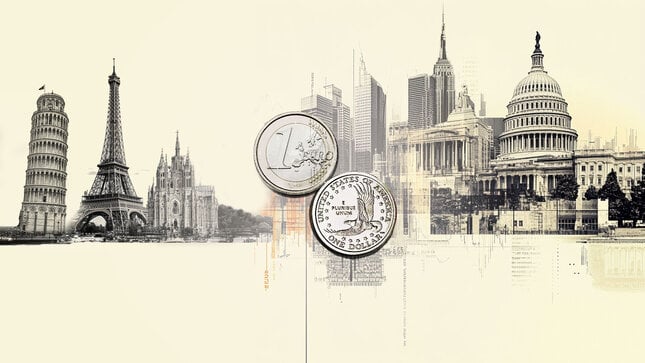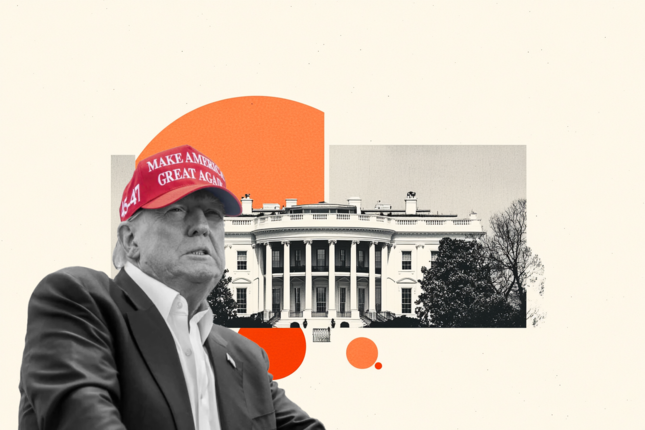
New Year, new life. Or so they say. Is this actually true for the markets? Coming into the New Year, we have asked several questions to ten of our best contributors trying to get a glance on which topics may be the key ones in this brand new 2016. In this article, we try to gather their most significant opinions, but you can find their full questionnaires following this link.
What will 2015 be remembered for?
Before going to 2016, we wanted to take a brief look at what last year brought to the markets and what will it be remembered for. Our contributors shared a wide range of topics and arguments to keep in mind from last twelve months, but two of them stand out.On January 15th, the SNB decided it was time to end the EURCHF peg. The decision caught by surprise many people and changed many things in the FX market, as Simon Smith recalls:
In the world of FX, it will be the SNB's decision to remove the cap on the Swiss franc back in January. I was at my desk and distinctly remember reading the headline on Bloomberg. My jaw dropped to the floor then EURCHF swiftly followed. It had huge implications for our industry and also lessons. The main one is that when it comes to central bankers and exchange rates, you can only believe their word for as long as it takes for them to finish the sentence which contains it.During the rest of the year, central banks got most of the attention, with the Fed clearly starring in their role of deciding when to end the Zero Interest Rate Policy, not pulling the trigger until their last chance in December. Barbara Rockefeller thinks the decision will be very impactful on the markets:
We will be on the lookout for the unintended consequences of normalization, benefits as well as drawbacks. It’s of no little interest that many market participants have never lived and worked in a rising rate environment. We should assume their judgment is not as good as the judgment of those who have seen a rising rate environment.Honorable mentions to other topics also highlighted by the experts consulted: the pounding of the oil prices, the volatile trading conditions or the chinese economic slowdown. There is more to come on these subjects in the next paragraph.
Trends to prepare for in 2016
Now looking at what trends traders need to be prepared for this year, the most repeated themes were the low price of oil and the struggling chinese economic outlook. These are two trends we already saw (and broadly impacted the markets) in 2015, but according to our experts they are far from over.Rob Booker has a bold prediction regarding oil. Crude may be on a very difficult-to-stop bearish cycle:
Oil falling to $20. Which creates chaos in the middle east. Oil falls, production remains high or even increases to sustain government operations in oil-producing countries, which further depresses the price of oil. Only war in the middle east could change this trend. And no one wants that.Regarding China, Nenad Kerkez warns us from what the chinese slowdown may bring:
Slowing GDP Growth in China and Shadow banking risks due to their weakening property market. Expect more pressure on Hard Commodities prices as China shifts from bad-investment in the construction industry to a Consumption and Serviced based economy.Other important trends also mentioned were the monetary policy divergence from central banks around the world, the emerging markets economic downturn, a potential global equities crash or the political chaos several G10 countries may face (starting from the US Election and the potential Brexit referendum).
Best and worst currencies in 2016
What would a yearly FX market questionnaire be without its currency predictions? We couldn't prevent ourselves from asking the experts to make their predictions on which the best and worst performing currencies may be next year.The answers were quite diverse, specially when trying to figure out the best performer. The USD (along with the JPY) was the most repeated one with two answers. Rob Colville has this cautious reasoning:
I think that policy tightening and rising interest rates in the US have created a foundation for continued US dollar strength throughout 2016, and while the long-dollar camp is already pretty crowded, you can’t fight the fundamentals, as they say. It’s not a surprise nor a very provocative pick, but the US dollar looks like the big winner to me for the year ahead.Interesting random mentions in the bullish side: the RUB (!), the AUD, the NZD.
By contrast, our experts agreed to a higher degree on which the worst performer may be, with four of them pointing directly at the CAD. Simple reason, if oil prices are to continue, the loonie may be in trouble, as Yohay Elam quickly summarizes:
On the other end, we could see the Canadian dollar continue struggling on oil prices and the USD end the year lower than where it will start it.Interesting random mentions in the bearish side: the GBP, the BRL, the JPY.
Flying under the FX radar
Besides the major traded pairs, we also wanted to know which less well-known currencies had caught the eye of our experts, so we asked about which ones flying under the radar might be interesting to trade this 2016.As expected, we got plenty of different answers, but with a particular eye on oil-related and emerging market currencies, which could be in trouble if commodity prices continue to slide, or ride strong rallies if oil prices bounce back, as Richard Perry suggests:
In a similar story to the Rouble, if the oil price can stage a recovery, then talk about future rate cuts from the Norges Bank will fade and the Norwegian Krone could be set up for a significant recovery.Other random currencies mentioned: EURTRY, ZAR, MXN, USDCNY, USDSEK, USDSAR, ARS, ILS
Macroeconomic events to impact the markets
No surprise on what is widely expected in the macroeconomics side by our pool of contributors. The Fed tightening pace is the macroeconomic topic most repeated, as the number and pace of interest rate hikes is viewed as the key to trade throughout the whole market. Matt Weller summarizes it quite well:It’s not rocket science, but the impact of the Federal Reserve’s decision to start raising interest rates for the first time in nearly a decade will have a major impact on all markets in 2016. The biggest impact could be in emerging market currencies, which have long been dependent on easy funds from the world’s most important central bank.Besides the Fed, other central banks policies, such as the ECB, the BoE or the PBoC also were located as key events to follow.
Subdued oil prices, another subject already mentioned in previous questions, again made a significant appearence here, with the OPEC meetings taking a lot of attention from the experts. Will they cut barrel production to lift the prices? That's what Jameel Ahmad wonders:
Traders are going to be closely watching future OPEC meetings, with anticipation rising that oil producers cannot continue to cope with such depressed prices.Other random topics mentioned: Donald Trump's potential run to US Presidency, Sovereign debt and taxes, Yuan's peg to a basket of currencies, UK equity crisis, the impact of the Summer Olympics in Brazilian economy.
Asset class to bring next financial crisis
This was probably the most difficult/controversial topic treated by our experts pool. By definition, it is really difficult to know where will the next crash/crisis come from, as it is something unexpected which causes the market to promptly adjust.That said, we highlight Martin Armstrong's answer, trusting his impressive record of tracking and predicting crisis in the past:
That appears to be the debt markets. Capital will begin to shift from public to private as they see the risk is with governments poorly managed and no hope of correcting the problem. We are likely to see the US share market rise sharply only everyone starts to realize government are fiscally in serious trouble.Actually, debt markets and bonds were the assets classes most mentioned by our experts, so it may be even more interesting than usual to track yields this year. Another popular answer were emerging markets and particularly China, which is already getting in the headlines early in the year.
People to watch
Last but not least, we wanted to know which faces are going to be the most (un)popular this year. We know the markets are kind of impersonal, but there's certain people who have the power to influence it.It didn't came by surprise neither than the people to watch according to the pool of experts will be the ones in charge of central banks. Janet Yellen and Mario Draghi stand out here, but don't forget to listen to what Mark Carney, Stephen Poloz or Thomas Jordan have to say. Draghi holds the top spot in the list, maybe because what Barbara Rockefeller says:
The single most important person in the finance world is Mario Draghi. He always tells the truth, even if we can imagine it’s not the whole truth. We have never had so much confidence in a central bank chief in living memory. It is entirely correct and useful to hang on his every word.So, mark in your agendas Thursday January 21, the date of next Super Mario post-ECB meeting conference. He always has something to say.
Information on these pages contains forward-looking statements that involve risks and uncertainties. Markets and instruments profiled on this page are for informational purposes only and should not in any way come across as a recommendation to buy or sell in these assets. You should do your own thorough research before making any investment decisions. FXStreet does not in any way guarantee that this information is free from mistakes, errors, or material misstatements. It also does not guarantee that this information is of a timely nature. Investing in Open Markets involves a great deal of risk, including the loss of all or a portion of your investment, as well as emotional distress. All risks, losses and costs associated with investing, including total loss of principal, are your responsibility. The views and opinions expressed in this article are those of the authors and do not necessarily reflect the official policy or position of FXStreet nor its advertisers. The author will not be held responsible for information that is found at the end of links posted on this page.
If not otherwise explicitly mentioned in the body of the article, at the time of writing, the author has no position in any stock mentioned in this article and no business relationship with any company mentioned. The author has not received compensation for writing this article, other than from FXStreet.
FXStreet and the author do not provide personalized recommendations. The author makes no representations as to the accuracy, completeness, or suitability of this information. FXStreet and the author will not be liable for any errors, omissions or any losses, injuries or damages arising from this information and its display or use. Errors and omissions excepted.
The author and FXStreet are not registered investment advisors and nothing in this article is intended to be investment advice.
Recommended Content
Editors’ Picks

EUR/USD accelerates losses to 1.0930 on stronger Dollar
The US Dollar's recovery regains extra impulse sending the US Dollar Index to fresh highs and relegating EUR/USD to navigate the area of daily troughs around 1.0930 in the latter part of Friday's session.

GBP/USD plummets to four-week lows near 1.2850
The US Dollar's rebound keep gathering steam and now sends GBP/USD to the area of multi-week lows in the 1.2850 region amid the broad-based pullback in the risk-associated universe.

Gold trades on the back foot, flirts with $3,000
Gold prices are accelerating their daily decline, steadily approaching the critical $3,000 per troy ounce mark as the Greenback's rebound gains extra momentum and US yields tighten their retracement.

Can Maker break $1,450 hurdle as whales launch buying spree?
Maker holds steadily above $1,250 support as a whale scoops $1.21 million worth of MKR. Addresses with a 100k to 1 million MKR balance now account for 24.27% of Maker’s total supply. Maker battles a bear flag pattern as bulls gather for an epic weekend move.

Strategic implications of “Liberation Day”
Liberation Day in the United States came with extremely protectionist and inward-looking tariff policy aimed at just about all U.S. trading partners. In this report, we outline some of the more strategic implications of Liberation Day and developments we will be paying close attention to going forward.

The Best brokers to trade EUR/USD
SPONSORED Discover the top brokers for trading EUR/USD in 2025. Our list features brokers with competitive spreads, fast execution, and powerful platforms. Whether you're a beginner or an expert, find the right partner to navigate the dynamic Forex market.